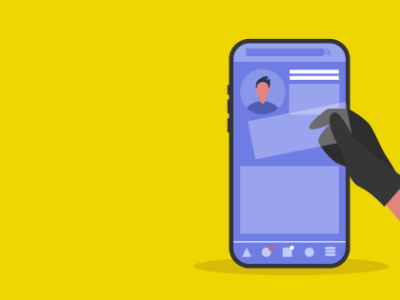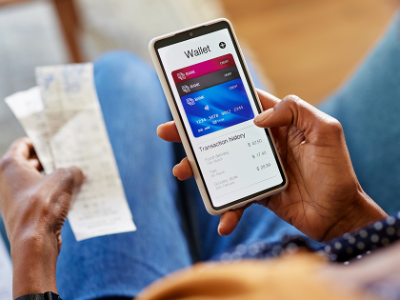Although identity theft affects millions of Americans, you don't just have to sit back and wait to become a victim. Here are 10 things you can do to protect your personal information and decrease your chances of becoming a victim of identity theft.
1. Buy a safe and keep all important financial and legal documents locked in it.
Make sure the safe is waterproof and fireproof. Store copies of the following for you and all family members:
- Social Security cards
- Passports
- Birth certificates
- Insurance policies
- Savings and retirement plan account information
- Property and vehicle titles
- Copies of legal documents, such as your will
This is all information that you don't want to be easily accessible.
2. Use a shredder for junk mail and sensitive documents.
You might be a fan of the "tear it up by hand" routine, but that makes it fairly easy for criminals to rummage through your trash and piece the papers back together. Not sure if you should shred it? If a piece of paper includes any personal information about you, put it through the shredder. This includes all bills, account statements, credit card receipts, ATM receipts and anything else with your name, address, phone number, Social Security number or specific account information.
3. Don't be afraid to question why people need your information.
When asked to provide personal information (such as your Social Security Number or birthdate), find out why it's needed, how it will be kept safe, whether it will be shared and, if so, with whom. Do this with your employer, your doctor or other health care professionals, any businesses, and your children's schools. It is always better to be safe than sorry.
4. Screen your calls.
First, make sure your numbers are on the National Do Not Call Registry. Once your home and mobile numbers are on that list for 31 days, you should stop receiving calls. The ones that still call you are most likely trying to scam you. When you do talk to people over the phone and they are offering you some amazing opportunities or asking for personal information, ask for the offer or request for information in writing. You can also check online for a customer service number and call that number to confirm a request.
5. Be smart about your smartphone.
Try not to store sensitive information on your phone — and if you do, use a password-protected app so that no one can access it if they get into to your phone. Also, never share personal information over public Wi-Fi. And when texting, don't click on links from numbers you don't know. If it is from someone you do know but something about the text doesn't seem quite right, check with that person — his or her phone may have a virus!
6. Watch your inbox.
Sometimes spam messages can sneak through those spam filters. Avoid clicking on links in emails unless you are confident the link is safe. Remember that even if the email appears from someone you trust, his or her account could have been hacked. If you receive an email that appears to be from a business or company but something about it seems fishy, go to the website (by entering the address into your browser, not by using the link in the email) or call customer service.
7. Follow savvy shopper rules online.
Don't save payment information on websites— it might save you a few minutes every time you shop, but if the shopping site is hacked and your payment information is stolen, it could cost you way more time (and money) in the long run. And before you enter payment information on any website, check for the little padlock symbol next to the address or that the address begins with "https" instead of just "http."
Also, buy with credit cards, not debit cards. If criminals have access to your debit cards, they can wipe out your entire bank account pretty quickly. Also, under the federal government, you are only liable for unauthorized credit card charges up to $50. For debit cards, the amount you're responsible for is greater if you take more than 2 days to report the loss or theft.
8. Don't be too social on social media.
Use the strictest privacy settings so only people you know and trust can see what you share. Even then, never share information like your phone number, address or even the city where you live. Don't advertise where you are and what you are doing every minute of the day: Keep in mind that anything you share can be used by criminals to put together a profile of your habits.
9. Use different passwords and two-step authentication services.
Make sure you use different passwords for your email, social media and banking accounts. That way if you do have an account hacked, criminals won't have easy access to all your other accounts. Some sites, such as Facebook® and Google®, offer two-step authentication that requires you to enter a unique code even after logging in with your password. This means if a criminal were to have your Gmail® password, he or she wouldn't be able to log on if they didn't have your phone to get that unique code generated by the authenticator.
10. Sign up for an identity monitoring service.
Although you can do a lot to protect your personal information, you may not have the time or the access to track all your information and accounts 24-7. An identity monitoring service not only gathers information from credit bureaus but also constantly watches underground sites and social media sites. ARAG offers Identity Theft Protection, which inscludes credit monitoring and internet surveillance services in addition to legal services if you need to restore your identity or defend yourself from losses.



